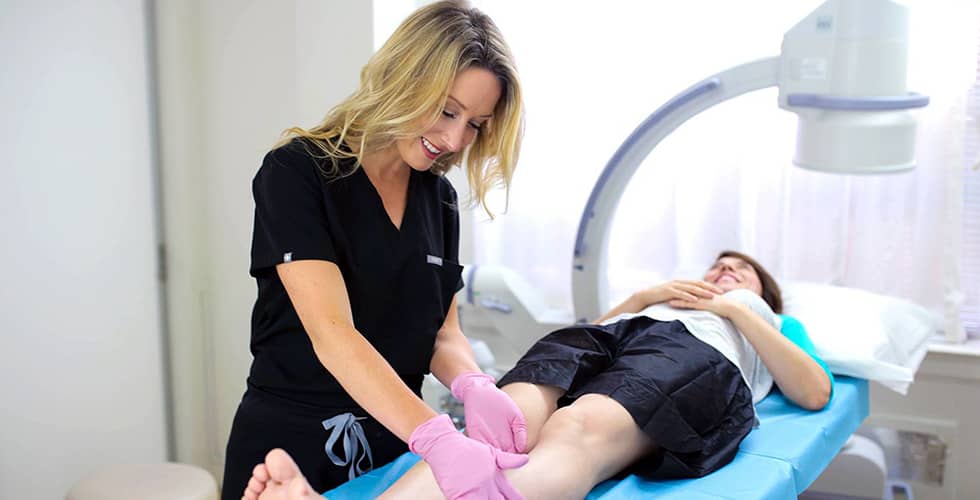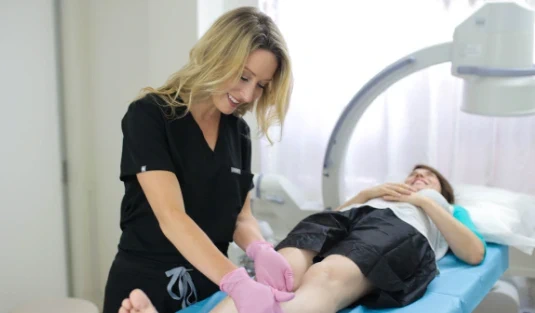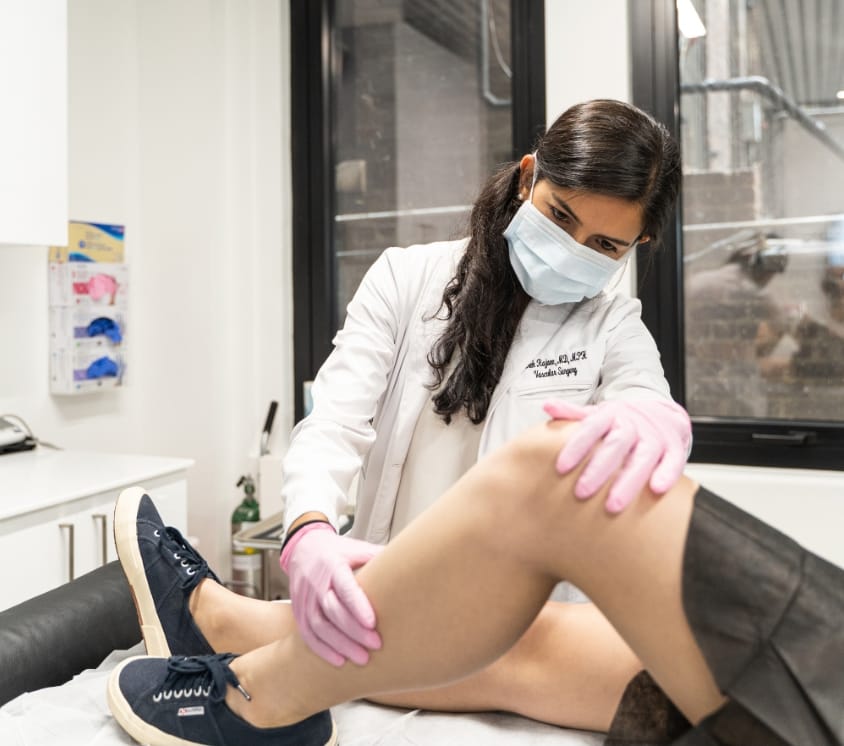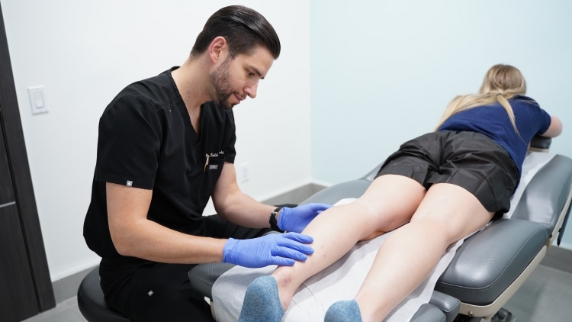Does Medicare Cover Vein Treatment?
When people find out they have varicose veins or spider veins, one of their primary concern is the cost of varicose vein treatment and if they can get medicare coverage. It’s important to understand that medicare will cover treatments that are medically necessary, not those that are cosmetic. Basically, medicare coverage extends to help you feel better not look better.
It’s possible that your spider veins are medically serious and symptomatic of vein disease, but it’s also possible your spider veins aren’t dangerous. In order to understand if medicare will cover treatment, you need to get an accurate diagnosis from your vein doctor. In this article, we discuss does medicare cover vein treatment and which treatments are covered.

Medicare Coverage for Varicose Vein Treatment
Varicose veins are dilated blood vessels that protrude out of the surface of the skin in the form of twisted rope-like knots or tree trunks. Varicose veins are extremely dangerous because they’re always caused by chronic venous insufficiency.
Venous insufficiency is a condition in which your vein valves malfunction and fail to facilitate proper blood circulation to the heart. This causes blood to flow back down and pool behind the leg veins due to gravity. Over time, the accumulation of blood in the leg veins causes them to dilate and protrude out of the surface of the skin. That’s how you get varicose veins.

The varicose veins also get increasingly sensitive as they dilate further. Over time, they come to such a point that they bleed easily and continually, so much that you have to be taken to the emergency room. Over time, you also develop various skin diseases, skin infections, your skin gets discolored, and you develop non-healing wounds on your skin known as leg ulcers. The accumulated blood in your veins can also clot, which is a condition known as deep vein thrombosis. If you suffer from deep vein thrombosis, you also risk pulmonary embolism if the blood clots travel to your lungs. In that situation, varicose veins can also be lethal.
As you can see, the consequences of untreated varicose veins are varied and grave. That’s why varicose veins treatments that address the underlying venous insufficiency receive medicare coverage.
Medicare Coverage for Spider Veins
Spider veins are thin clusters of blood vessels that appear on the surface of the skin but they don’t bulge outwards. These blood vessels are in the form of spider webs or tree branches. Spider veins are not dangerous in and of themselves, even though they look awful. However, spider veins are often symptomatic of underlying venous insufficiency.
As such, you need to seek proper diagnosis so the vein doctor can determine if your spider veins are caused by vein disease. You can receive medicare coverage for the underlying venous insufficiency but not to treat the superficial veins.
Basically, whether medicare will cover treatment depends entirely on whether your spider veins and varicose veins are caused by chronic venous insufficiency.
Treatments Medicare will Cover
We have already explained why certain vein treatments may receive medicare coverage and why medicare will not cover certain treatments. The following are the two best varicose vein treatment that medicare will cover.
Radiofrequency Ablation
Radiofrequency ablation is the most popular varicose vein treatment available. During the procedure, the vein doctor first creates a small incision inside your thighs. The vein doctor then inserts a catheter through the incision under ultrasound guidance until it comes in contact with the problematic saphenous vein. Once the catheter is in place, the vein doctor activates it so it generates thermal energy or heat energy to destroy the diseased vein. The diseased vein hardens and eventually gets absorbed by the body. The accumulated blood reroutes to healthier veins.
Radiofrequency ablation completely treats vein disease, which is why it received medicare coverage. While the cost of radiofrequency ablation may range from $1500 to $3000 or more, your out of pocket costs will be much lower because of the medicare coverage.
Endovenous Laser Ablation
Endovenous laser ablation is also a minimally invasive and non-surgical varicose vein treatment similar to radiofrequency ablation. During this procedure, the vein doctor creates an incision on your skin and inserts a catheter hooked to a laser fiber. These devices are then used to enter the saphenous vein and generate enough laser energy to collapse the walls of the vein, rerouting blood to healthier veins. The collapsed vein eventually hardens and gets absorbed by the body.
Like radiofrequency ablation, this procedure is also minimally invasive, non-surgical, and it concludes within an hour. The biggest issue with this procedure is that it leads to some post-procedural discomfort. It gets medicare coverage because it treats the underlying vein disease and not just the surface symptoms.
Schedule your Varicose Vein Treatment
At Vein Treatment Clinic, we have some of the world’s finest vein doctors who thoroughly study your symptoms and diagnose the root cause of your veins before curating a minimally invasive varicose vein treatment plan. We also give you complete information on medicare coverage and ensure you completely understand your out of pocket costs before the treatment. For more information, please schedule your varicose vein treatment today.













